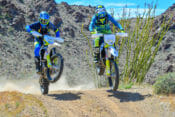Remembering a motocross legend, three-time AMA National Motocross Champion and AMA Motorcycle Hall of Famer Marty Smith.
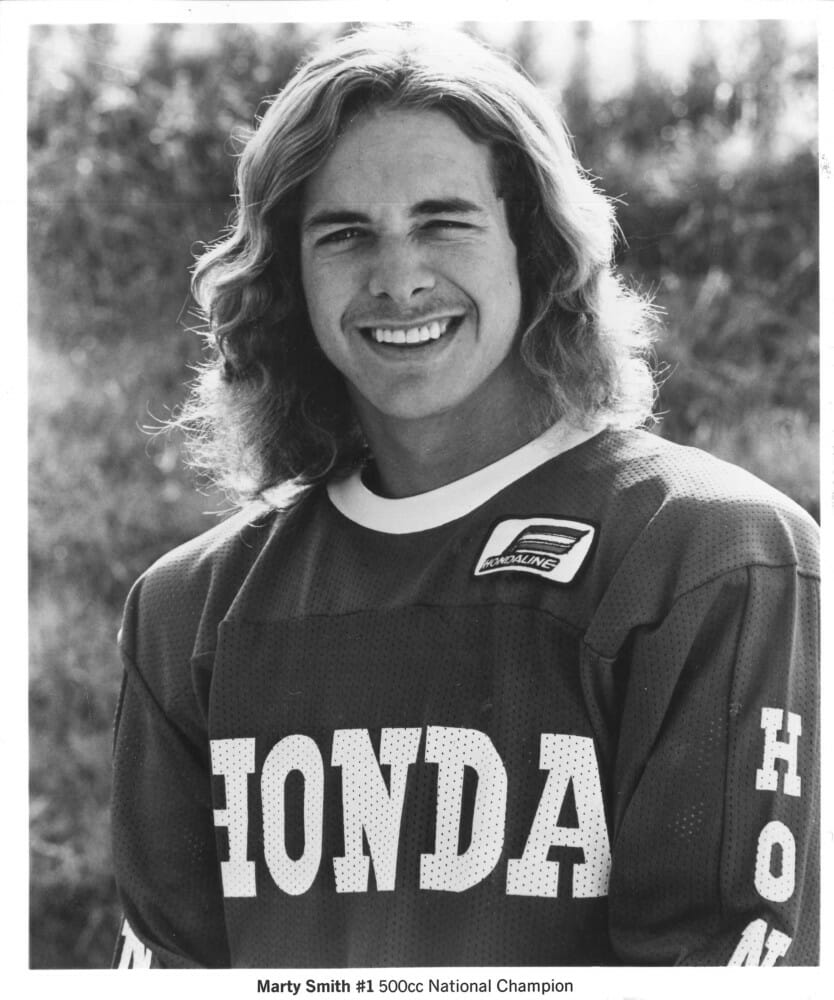
For those of us who were lucky enough to experience motocross in the 1970s, I’m guessing many of you would agree that it was the most exciting time ever to be a motocross fan, even to this day. I know it was for me, at least. Motocross in America was still new, fresh and growing fast. Motocross was exciting to watch and even more exciting to participate in. Motocross bikes were evolving by leaps and bounds seemingly month by month, not year by year. And, as the sport of motocross became more and more popular, so did those who were exceptionally good at it.
While there were many well-known motocross racers in America at the time, the sport was still looking for that one racer that MX fans, especially young ones, could relate to and really latch on to; someone who could also attract the attention and reel in those who did not know anything about the sport or those who had just a mild interest. The sport of motocross could use someone to help crank up its popularity a few more notches and perhaps improve its image to the outside world even more. That person finally came along. His name was Marty Smith.
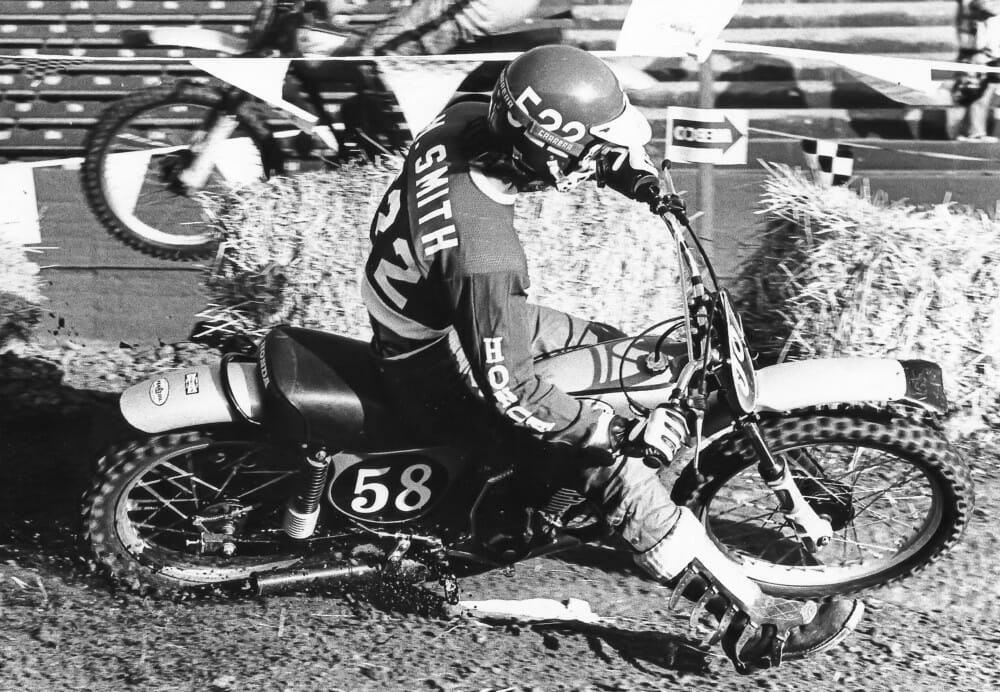
Scott Burnworth: “…He was always the nicest guy and a hero to me growing up in SD. We lost a true legend, along with his beautiful wife, Nancy. We are all deeply saddened and will miss them greatly.”
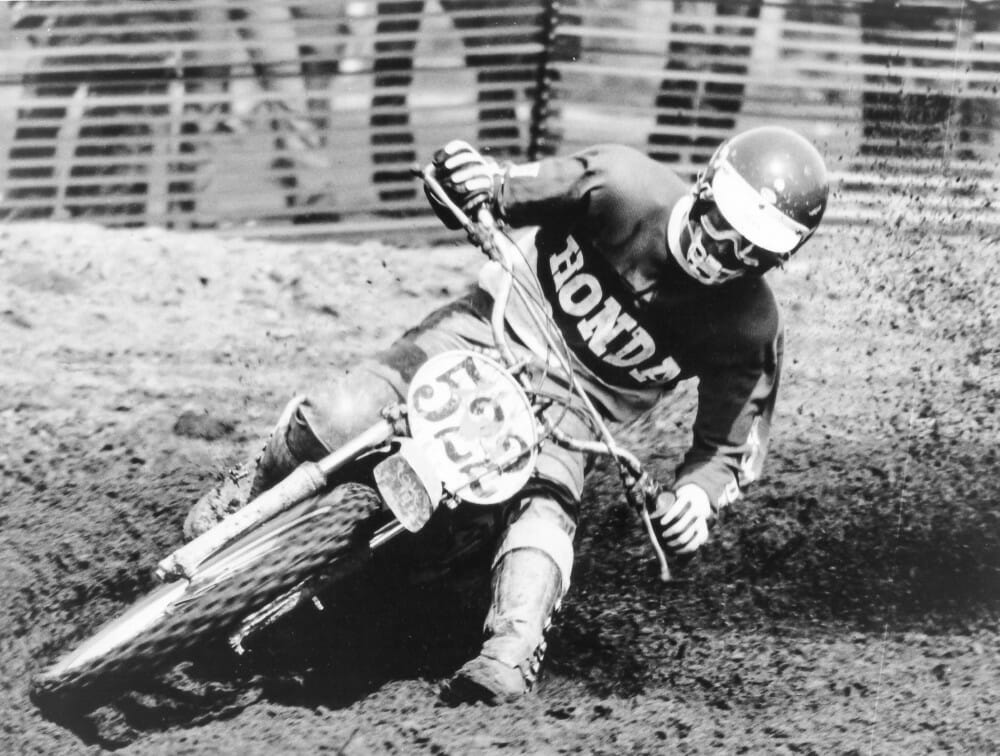
Marty Smith was one of the first young superstars of the sport. The Southern Californian, who grew up in San Diego, started turning heads at the age of 14, especially when he won the 125cc class on a Swedish-built Monark at the Hangtown Motocross Classic (the last year before it became an AMA National). Immediately after that race, Honda offered Smith a deal and signed the 17-year-old to a factory contract to compete in the four-round AMA 125cc Motocross National Championship’s inaugural season in 1974. He was given Honda’s latest RC125 works bike, the company’s super-trick race version of its popular CR125M Elsinore production bike. He promptly won the first two Nationals, took second place in the other two and captured the number-one plate in his first try.
But what most of us who were lucky enough to witness that 1974 season and Smith’s two other National Championship-winning seasons in 1975 and 1977 (500cc) will perhaps remember most about Marty Smith was his long hair, and his surfer, teen-idol looks, which also made him a fan-favorite with the girls, whether they were into motocross or not. He also had that all-American flare (and it certainly didn’t hurt that Honda’s corporate racing colors were red, white and blue) that parents of young motocross enthusiasts across the country could approve of. Honda certainly did and used his clean-cut image and youthful good looks as selling tools for its Elsinore production motocross bikes. It was a win-win situation for everyone, especially for the sport of motocross.
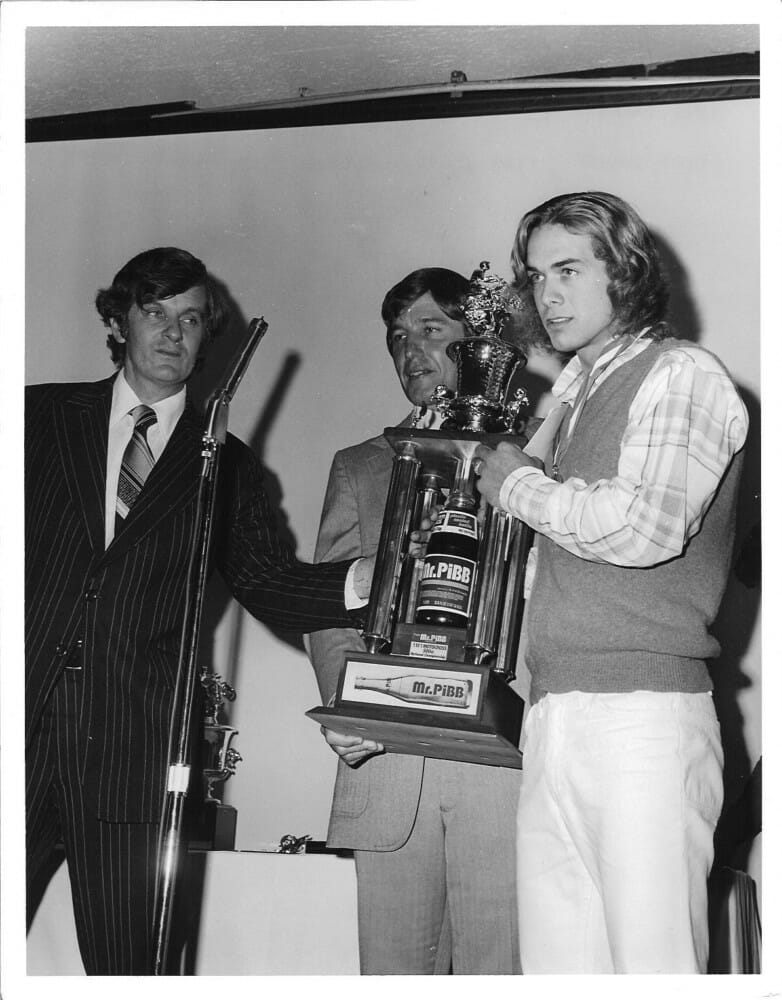
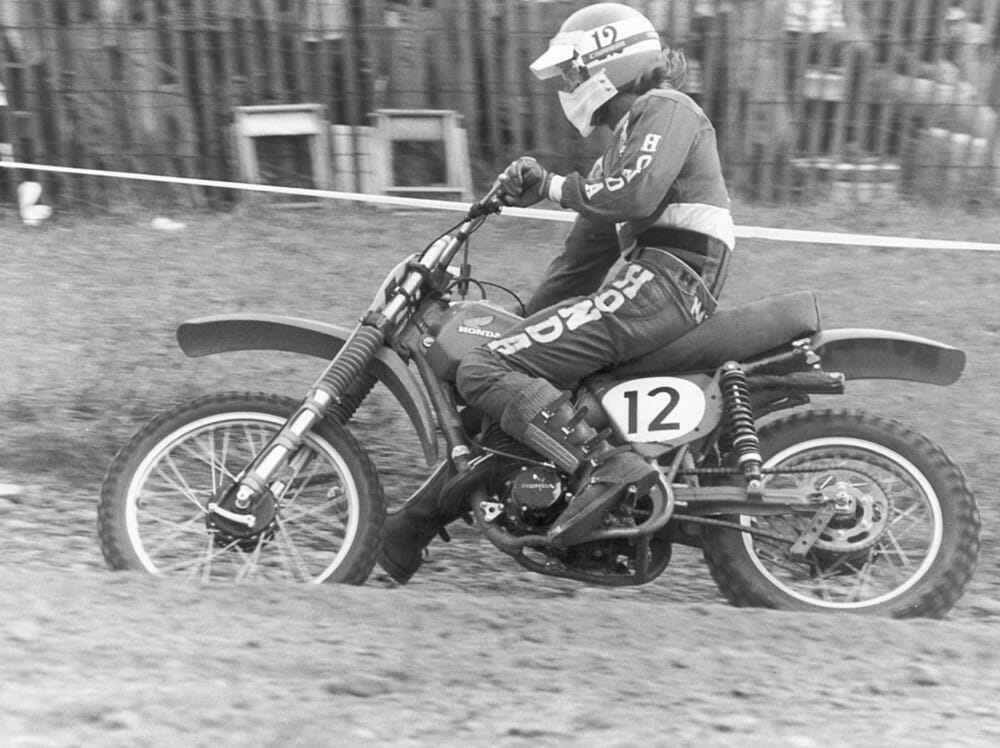
“It was an era of rebellion for a lot of kids,” remembers Dave Arnold, who turned wrenches for Smith’s race bike, including his championship season in 1977. “Marty was a baby boomer, and when those kids’ parents looked at motocross and saw that it was kind of an athletic sport—or at least healthier than sex, drugs and rock and roll—they were more inclined to fund the purchase of an Elsinore or whatever. Marty epitomized that; he had teen-idol looks, wore a red, white and blue Honda jersey and was on book covers and lunch pails.”
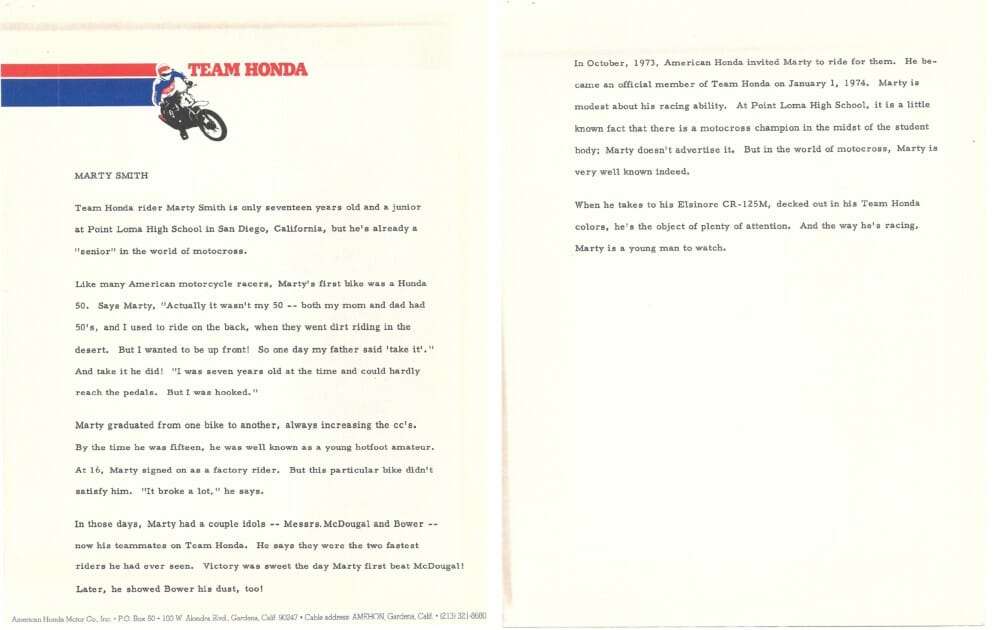
Johnny Campbell: “Marty inspired me to ride Hondas from an early age. I wanted to look and ride like Marty Smith. He was in a class of his own and will be sorely missed. My prayers are with the Smith family.”
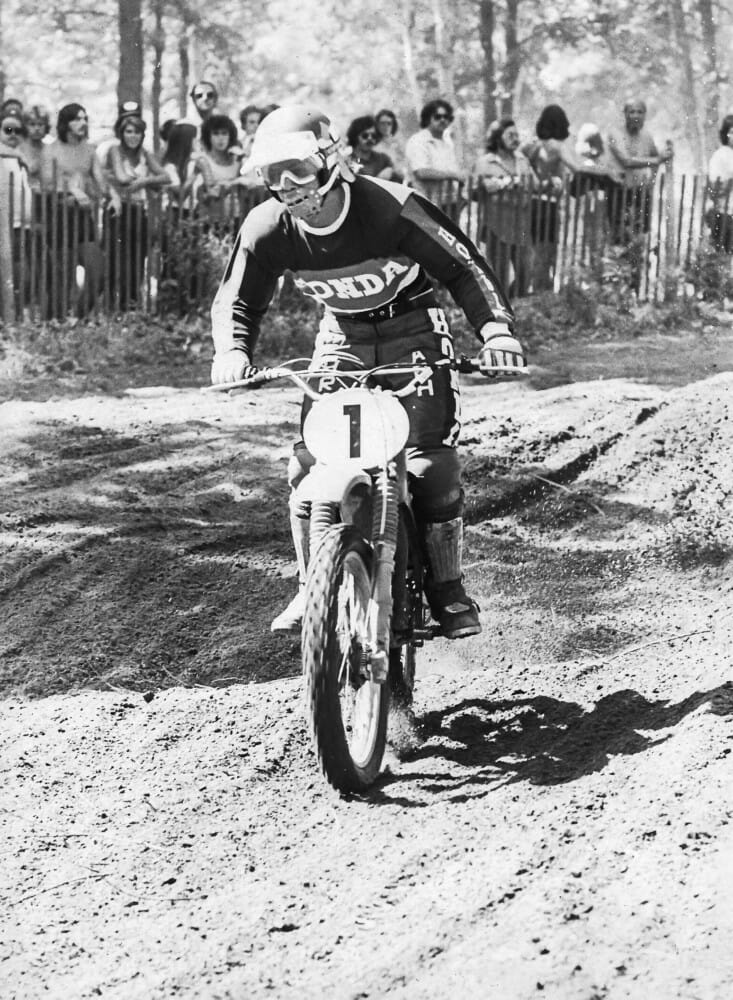
Throughout his career, Smith was also humble and never beat his own drum too loudly. He just went out and raced and did the best he could every time he got on the motorcycle, which usually resulted in a win. He successfully defended his 125cc title in 1975, but another new-comer, Bob Hannah, clipped Smith’s title run at two. Smith moved up to the 250cc and 500cc classes in 1977 and came within a blown transmission of winning the 250cc championship, which ended up going to his new archrival, Hannah. Smith, however, got the last laugh by winning the 500cc title later that year.
In 1978, Smith was still at the top of his game when he suffered a painful hip injury on the second night of racing during a doubleheader Supercross at the Houston Astrodome. It was the first significant injury of his career; Smith was so smooth and level-headed that he rarely crashed. He once said, “I like to be under control at least 50 percent of the time.”
Smith was never the same rider after the Houston crash and later admitted that his heart wasn’t into racing anymore. His six-year run with Honda came to an end, and he was all set to retire when Suzuki came along and gave him an offer he couldn’t refuse, a lucrative two-year deal where he’d race alongside teammates Danny LaPorte, Kent Howerton and Darrell Shultz in 1980 and ’81. Smith was still a threat to win races and finish on podiums, but, in reality, he was no longer a threat to win championships. He officially hung up his boots at the age of 24 with little fanfare after the ’81 season.
Jeff Ward: “This is really hard for me and everyone that knew Marty. I have a special bond with Marty. As a kid, my goal was to be the next Marty Smith, he was a motocross god…I did everything to look and ride like Marty…RIP Marty and Nancy.”
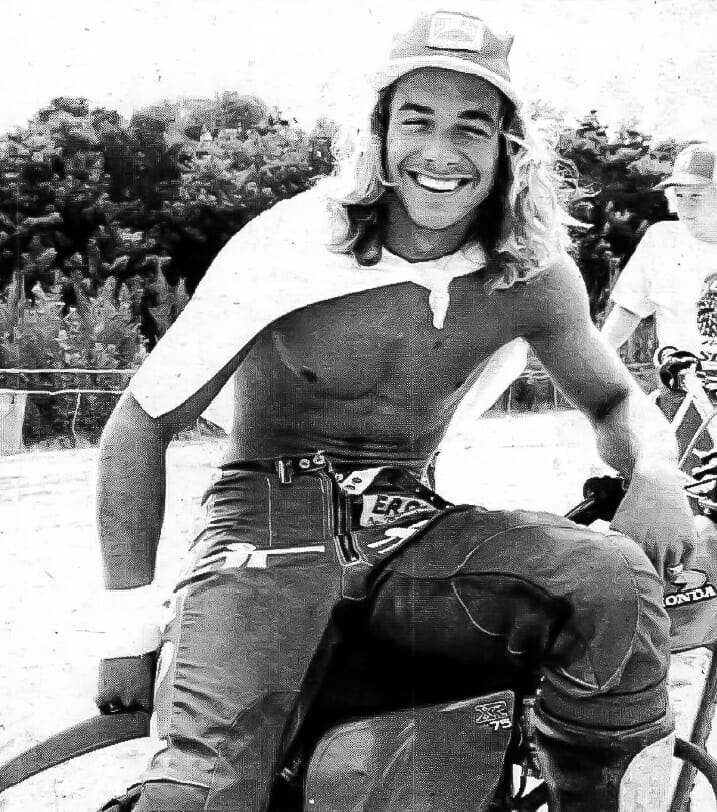
When asked in a 1980 interview with Cycle News what he liked best about racing, he answered: “I’ve had a lot of good experiences about racing. I can’t pinpoint one thing, but just winning is a really good experience in itself.”
And what was the worst? “Losing a championship by a couple of points. The year I won the Open-class championship, I missed the 250cc (Championship) by just 15 points because I DNF’d the second-to-last race in Michigan. I would have had two National Championships in two classes in one year, which would’ve never happened again because now they won’t let you race two classes. That was a depression to me because I wanted it really bad.”
Pete Fox: “Growing up in a motocross household, Marty Smith was a childhood hero…My uncle Bob said that Marty was the most friendly, nicest, coolest, most exciting and fun guy to be with that he knew in all of motocross.”
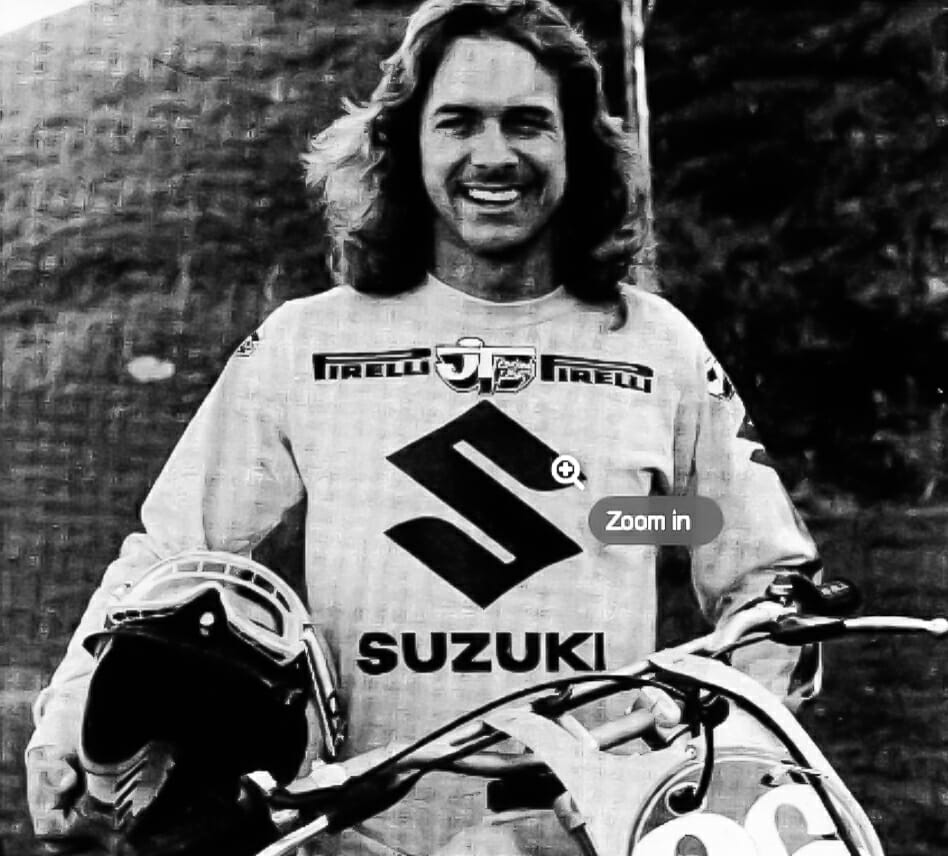
While vying for American titles, Smith also beat some of motocross’ best riders on the world stage when he won the 125cc USGP of Motocross at Mid-Ohio in 1975 and again in ’76. And he even won a GP round in Europe, in Denmark, also in 1976. That year, he and Honda attempted to chase the 125cc World title, as well as the AMA titles. Although he finished a respectable fourth in the championship despite several mechanical DNFs, Smith never enjoyed racing in Europe, confessing in our 1980 interview: “I was young at the time, and I didn’t like it there. I liked being home much better.” He later said, “I got a cold reception over there, to say the least, I didn’t like anything about Europe, so that pretty much ended my desire to contest the world championship on a full-time basis.”
Scot Harden: “Marty Smith was a champion motocrosser, an icon in the sport, a legend, and most important of all, a friend…Like everyone else, I worshipped Marty as the epitome of California cool and the baddest 125cc motocrosser on the planet at the time when he was the center of the motocross world…I admire Marty and Nancy more than anything else for their commitment to each other…Godspeed Marty and Nancy!

Following his racing career, Smith flew under the radar and seemed to stay out of the spotlight, but he never lost the love of motocross and started a motocross school in San Diego called the Marty Smith Motocross Clinic.
Smith was also inducted into the AMA Motorcycle Hall of Fame in 2000.
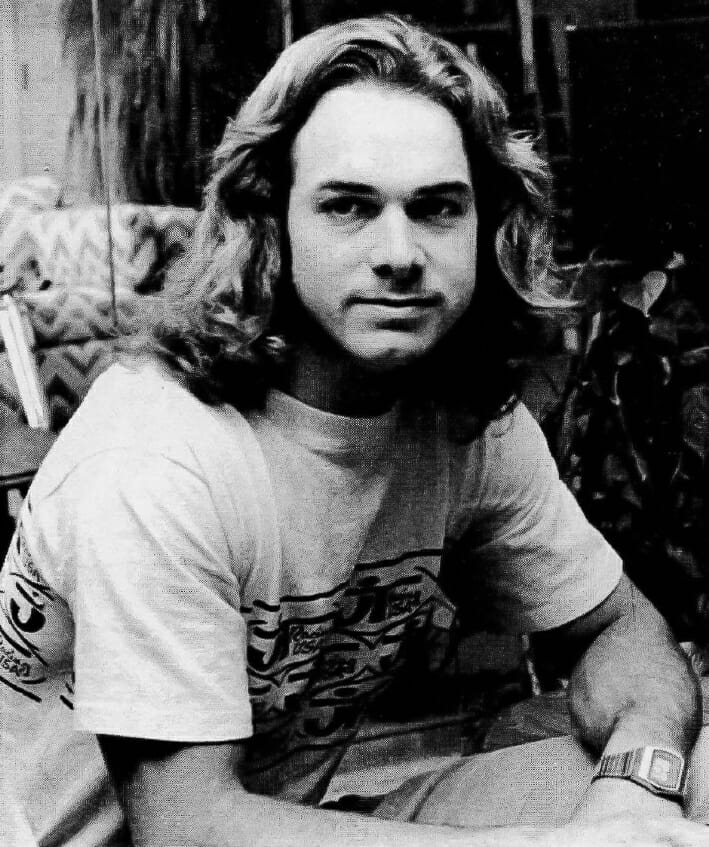
Ron Lechien: “So devasted…RIP Marty & Nancy, will always cherish the fun times we had together.”
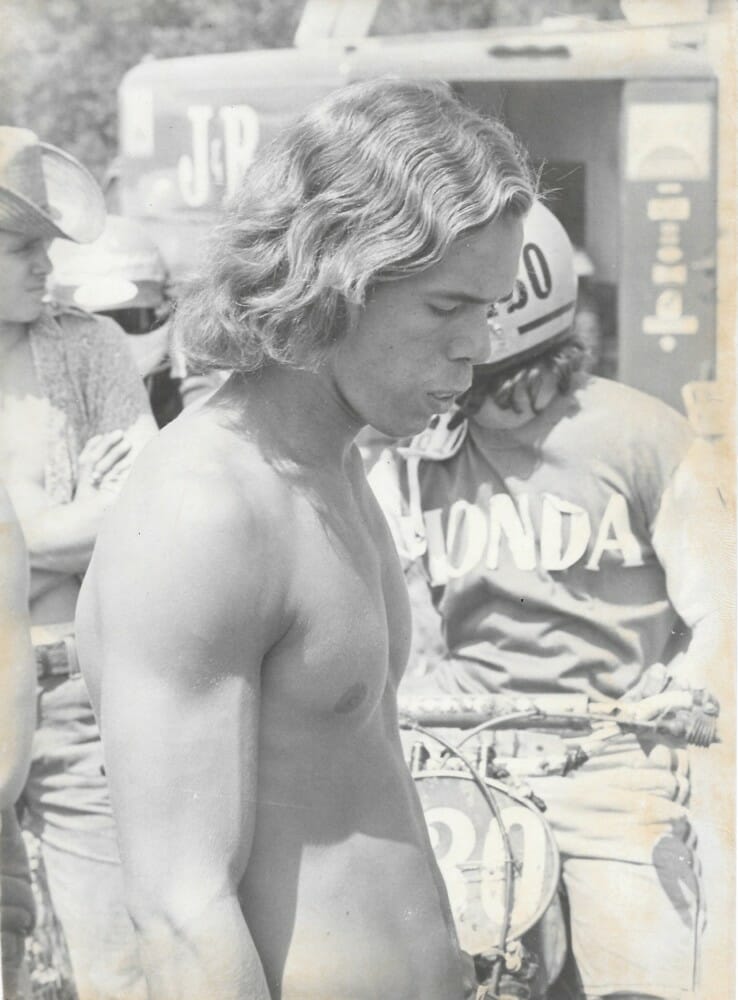
Smith lost his life in a tragic dune buggy accident, April 27, at just 63 years of age. His wife, Nancy, who was riding with Smith and two friends in the buggy, was also killed. (The other passengers were unhurt.) Nancy was almost as well-known as Marty as his girlfriend throughout much of his racing career. Nancy was always by his side, and the two would eventually wed in 1980.
Smith is survived by his siblings, Todd and Jeanette; his children, Tyler, Jillyin and Brooke; and seven grandchildren.
Marty Smith, one of motocross’ greatest legends, will be forever missed. CN
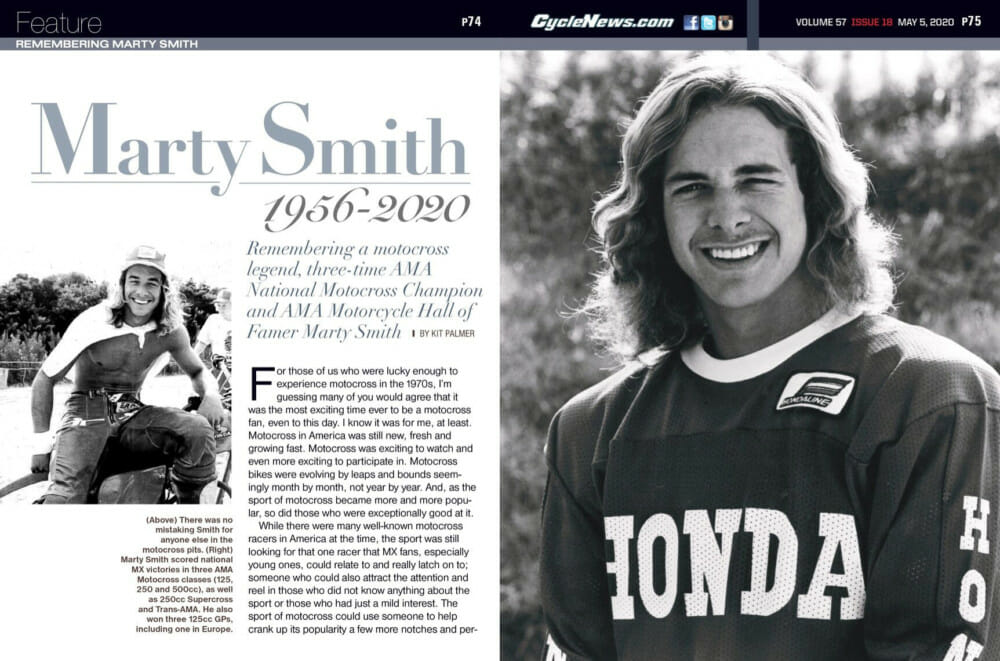
Click here to read In Remembrance of Marty Smith, 1956-2020 in the Cycle News Digital Edition Magazine.
Click here for all the latest motorcycle Industry News on Cycle News.
